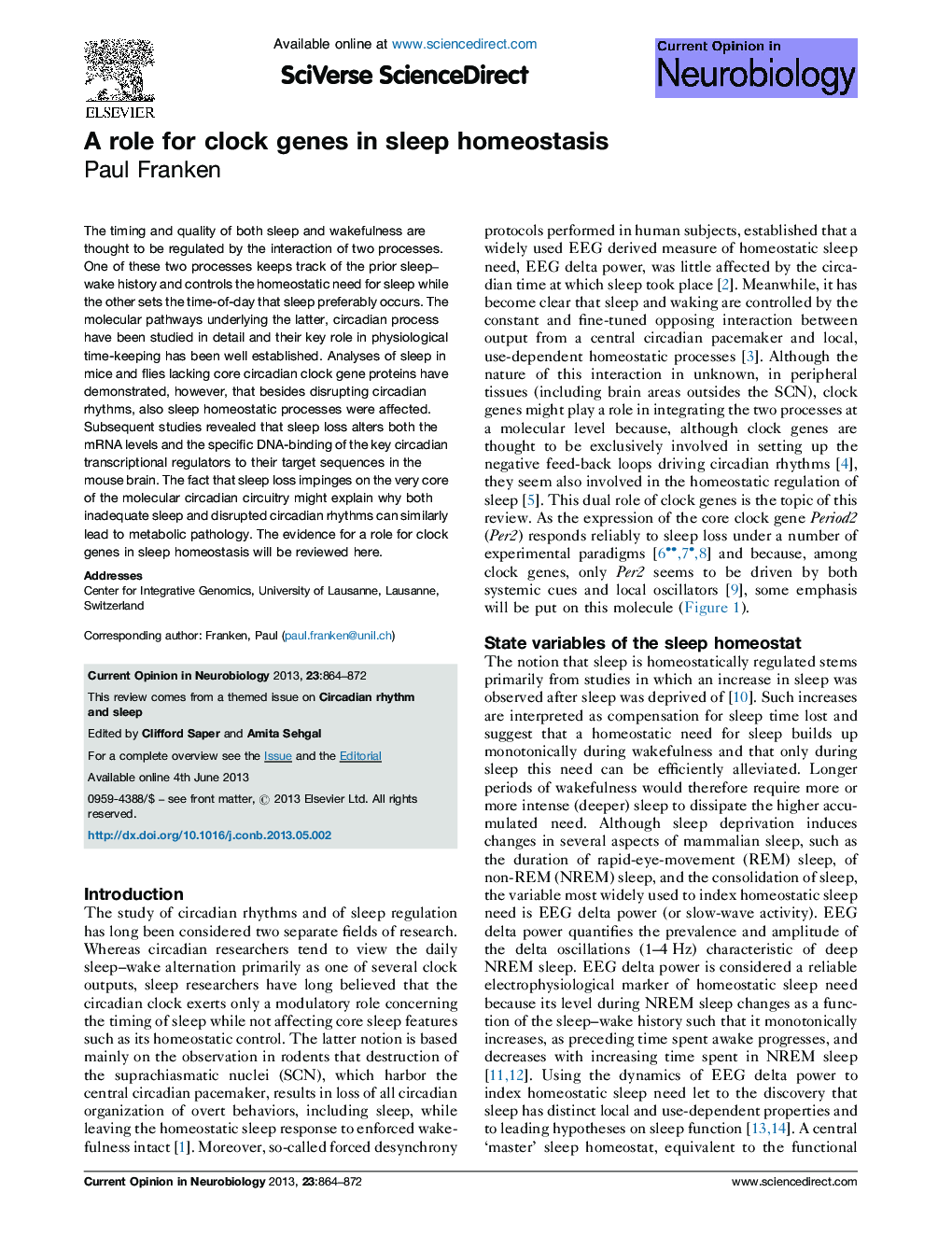| کد مقاله | کد نشریه | سال انتشار | مقاله انگلیسی | نسخه تمام متن |
|---|---|---|---|---|
| 6266630 | 1294915 | 2013 | 9 صفحه PDF | دانلود رایگان |
- The molecular circuitry used to set time-of-day is also used to track time-spent-awake.
- Period2 is regulated both by circadian and activity induced signaling pathways.
- In peripheral tissues clock genes act as sensors of homeostatic need.
- Clock genes might independently link insufficient sleep and circadian misalignment to metabolic syndrome.
The timing and quality of both sleep and wakefulness are thought to be regulated by the interaction of two processes. One of these two processes keeps track of the prior sleep-wake history and controls the homeostatic need for sleep while the other sets the time-of-day that sleep preferably occurs. The molecular pathways underlying the latter, circadian process have been studied in detail and their key role in physiological time-keeping has been well established. Analyses of sleep in mice and flies lacking core circadian clock gene proteins have demonstrated, however, that besides disrupting circadian rhythms, also sleep homeostatic processes were affected. Subsequent studies revealed that sleep loss alters both the mRNA levels and the specific DNA-binding of the key circadian transcriptional regulators to their target sequences in the mouse brain. The fact that sleep loss impinges on the very core of the molecular circadian circuitry might explain why both inadequate sleep and disrupted circadian rhythms can similarly lead to metabolic pathology. The evidence for a role for clock genes in sleep homeostasis will be reviewed here.
Journal: Current Opinion in Neurobiology - Volume 23, Issue 5, October 2013, Pages 864-872
